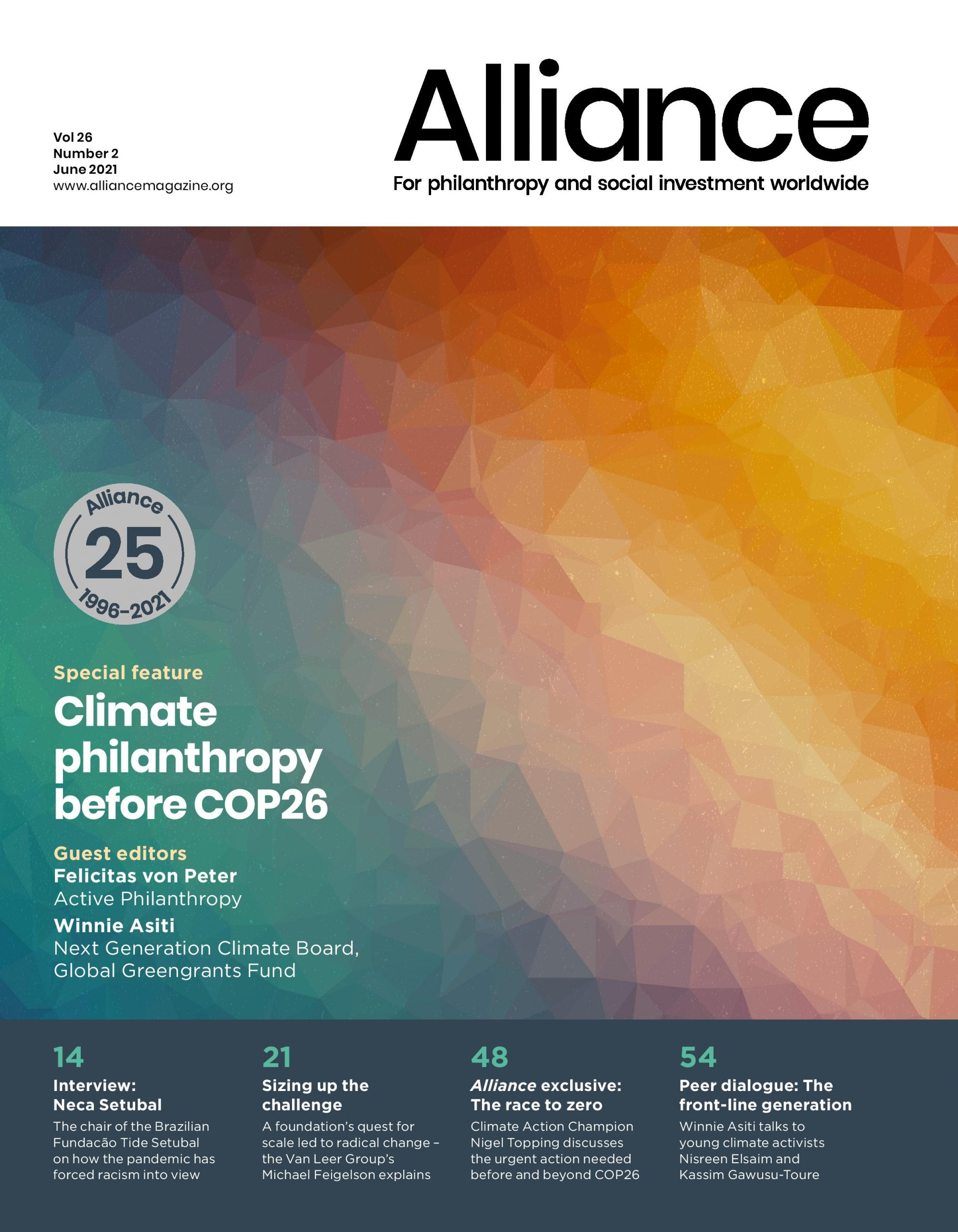The climate justice movement has a vital role in achieving delivery of the Paris Agreement and Agenda 2030 – but it’s not always seen that way
They come in different shapes, sizes and colours. Some are radical in their message, calling for civic rebellion and industry boycott while others use culture, song, dance and art to mobilise support for climate action. All have one thing in common – they are part of the ever-growing global climate justice movement. This term is an inaccurate, but convenient shorthand. What the world has seen over the past several years is more than just one movement. In fact, the climate justice movement is more of a heterogeneous movement of movements.
That the climate justice movement has contributed to our collective understanding of climate change and the global momentum towards action cannot be disputed. This is particularly true since the 2000s when the environmental, political and diplomatic communities were devising a successor to the soon to ‘expire’ Kyoto Protocol.
The concept of a ‘climate gravy-train’ has taken root in climate-denier circles and is used to discredit not only climate scientists but also climate justice movements.
One important contribution of the climate justice movement is building a comprehensive understanding of climate change – expanding it from an exclusively environmental matter to cover a broad range of socio-economic and political fields. Suddenly, climate change was no longer only about carbon concentration in the atmosphere. It was about food, water, economic growth, human rights, poverty, gender, good governance and the existential threat to the planet.
Organisations such as the Lutheran World Federation (LWF) chose to contribute to the climate justice movement using their own unique faith and spiritual approach. The mobilising power of LWF and other faith-inspired climate justice networks has been in drawing on actions such as calls for global prayers and fasting for the climate.
The mission of the climate justice movement to create awareness and frame the changing climate as a crisis and an issue of justice remains valid. But in spite of its efforts, the actions of governments and industry to address the climate crisis with the ambition and the urgency it deserves have remained at best lukewarm. In fact, the movement has received a great deal of pushback from different quarters. Over the years, the concept of a ‘climate gravy-train’ has taken root in climate-denier circles and is used to discredit not only climate scientists but also climate justice movements, seeing them as people who make money or obtain influence through scaremongering and ignoring the fact that a great majority of the climate justice movement participants are people whose lives and livelihoods are threatened by the climate crisis.
The demands of the Covid-19 pandemic threaten to distract attention from the climate crisis.
The bold entry of children and young people like Greta Thunberg has re-energised the climate justice movement and inspired a global reawakening of sorts, but it has not stopped the climate deniers from attacking them.
The climate justice movement is fragile. The slow pace and temperamental nature of climate change politics has led to activism fatigue. This was particularly true after the failure of the Copenhagen climate change summit to deliver a new climate change deal. Many in the movement were disillusioned by the inability of governments to come to an agreement on such an existential matter. Moreover, the movement depends almost entirely on volunteers and donor support. While many of the organisations and networks in the climate justice movement implement community-based programmes, the climate finance system does not give them due consideration. Governments and donors need to recognise the climate justice movement as a conduit for climate action and a key part of the delivery of the goals of the Paris Agreement and Agenda 2030.
Now, the demands of the Covid-19 pandemic threaten to distract attention from the climate crisis, while the UN has issued a red alert following the release of the nationally determined contributions (NDC) synthesis report, which found that the world is nowhere near the level of action required to fight global warming. The next Conference of the Parties to the UN Framework Convention on Climate Change, COP26, must ensure that the world is back on track.
Isaiah Toroitich is head of Global Advocacy at the Lutheran World Federation.
Email: isaiah.toroitich@lutheranworld.org
Twitter: @IsaiahKipyeon







Comments (0)